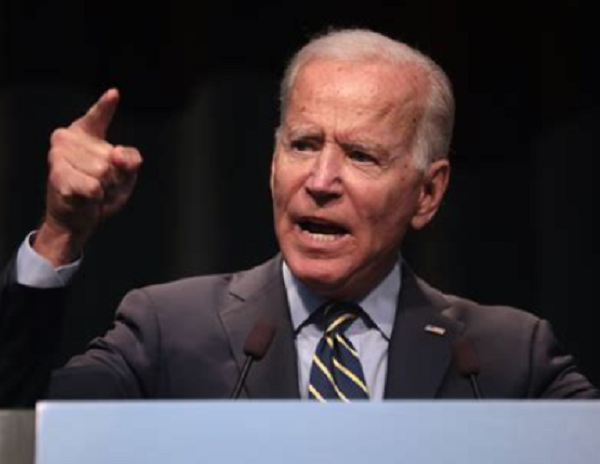The Biden administration finalized relaxed fuel economy standards on Friday, yet some analysts are still labeling the ultimate version as strict and tailored specifically to promote electric vehicles (EVs) among Americans who may not be inclined towards them.
The National Highway Traffic Safety Administration (NHTSA) revealed its ultimate revision for the Corporate Average Fuel Economy (CAFE) standards on Friday, streamlining certain elements of the initial proposal while maintaining others unchanged or very similar. Nevertheless, the ultimate regulations are expected to be burdensome for consumers and to advance the Biden administration’s efforts to significantly boost the prevalence of EVs on American roads in the next decade, as indicated by industry experts interviewed by the Daily Caller News Foundation.
The government establishes CAFE standards to mandate manufacturers to achieve specific fleet-wide average fuel efficiencies for their vehicles, according to the agency. The American Fuel and Petrochemical Manufacturers’ Association, which has been critical of the Biden administration’s EV initiatives, characterized Friday’s regulatory action as still “another policy aimed at banning most new gas cars.”
‘He’s Not Wrong’: CBS Host Presses Buttigieg On Trump’s Stance On Electric Vehicles Purchased https://t.co/5lCeyObwTj
— Daily Caller (@DailyCaller) May 26, 2024
“They can backpedal to try to save some face, but that doesn’t change what the ultimate objective is,” Tom Pyle, the president of the American Energy Alliance, told the DCNF. “When you start with a rule that is impossible to comply with, and then issue a final rule that is slightly less impossible, it doesn’t change the fact that you’re taking away choices from American consumers and families as to what cars will be available to them in the future.”
Pyle went on to describe the last rulemaking process as a “ploy” aimed at portraying the Biden administration as rational: “The final action announced Friday will require American manufacturers to reach a fleet-wide average of approximately 50 miles per gallon (mpg) by model year 2031, according to NHTSA. The initial proposal called for producers to reach a 58 mpg average by 2032, a goal so ambitious that Institute for Energy Research Senior Fellow Dan Kish described it at the time as a de facto “EV mandate.”
Furthermore, the agency mandates that manufacturers must enhance the fuel efficiency of their heavy-duty pickups and vans by 10% each year from 2030 to 2032. Subsequently, from 2032 to 2035, the required increase will be reduced to 8% annually. This is part of NHTSA’s final CAFE update.
“The agency published a Notice of Proposed Rulemaking last year that included several alternative proposals, and the agency received more than 63,000 public comments,” a NHTSA spokesperson told the DCNF. “NHTSA reviewed every public comment in the process of writing this final rule and has concluded that the standards in this final rule are the maximum feasible, as required by law.”
The spokesperson of the NHTSA stated that the rule is anticipated to yield a net benefit of $48 billion, resulting in savings on gasoline and the prevention of over 710 million metric tons of CO2 emissions.
“Because the government, literally, through CAFE standards, is telling manufacturers, ‘If your fleet-wide average fuel economy is not adequate, we are going to bring down the hammer on you,’” OH Skinner, executive director of the Alliance for Consumers, told the DCNF. “Shock of all shocks, the car companies react by jacking up the price on the desirable gas powered cars that hold a family of six, and just bailing as much water as they can to move the requisite number of tiny electric compliance cars that nobody wants. CAFE standards, more than any other set of rules, explains why people have sticker shock when they go to get the cars they need.”

